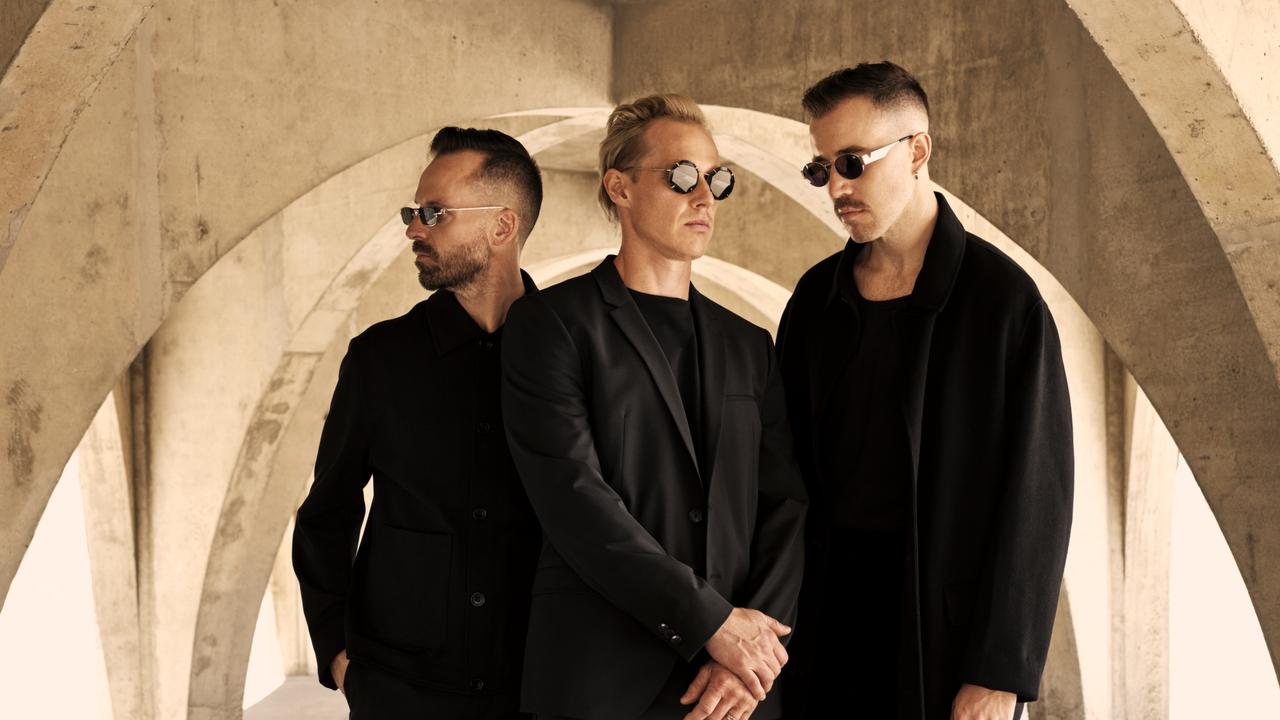David Bowie dies at 69 after battle with cancer
David Bowie, whose innovative and illustrious career lasted five decades, has died after an 18-month battle with cancer.
David Bowie, the master of reinvention whose appeal spanned generations of fans, styles of music and modes of artistic expression, has died from cancer at the age of 69.
The shock announcement was made on Bowie’s Twitter and Facebook pages.
The singer’s representative Steve Martin issued the following statement: “David Bowie died peacefully today surrounded by his family after a courageous 18 month battle with cancer,” read the statement.
“While many of you will share in this loss, we ask that you respect the family’s privacy during their time of grief.”
Rumours of the singer’s death began to appear online over the weekend, but were thought to be a hoax prompted by the release of Bowie’s new album Blackstar on his birthday last Friday.
The death brings the curtain down on one of the most acclaimed artists of modern British music.
Bowie - music’s great innovator
An exhibition in Melbourne last year celebrated the music icon’s defining moments.
Iain Shedden’s top 10 David Bowie songs.
Tributes flow for music legend
January 10 2016 - David Bowie died peacefully today surrounded by his family after a courageous 18 month battle... https://t.co/ENRSiT43Zy
— David Bowie Official (@DavidBowieReal) January 11, 2016Very sorry and sad to say it's true. I'll be offline for a while. Love to all. pic.twitter.com/Kh2fq3tf9m
— Duncan Jones (@ManMadeMoon) January 11, 2016Bowie, who was born David Jones on January 8, 1947, came of age in the glam rock era of the early 1970s.
He had a striking androgynous look in his early days and was known for changing his looks and sounds. The stuttering rock sound of “Changes” gave way to the disco soul of “Young Americans,” co-written with John Lennon, to a droning collaboration with Brian Eno in Berlin that produced “Heroes.”
He had some of his biggest successes in the early 1980s with the stylist “Let’s Dance,” and a massive American tour.
“My entire career, I’ve only really worked with the same subject matter,” Bowie said in a 2002 interview with The Associated Press. “The trousers may change, but the actual words and subjects I’ve always chosen to write with are things to do with isolation, abandonment, fear and anxiety - all of the high points of one’s life.”
His performance of “Heroes” was a highlight of a concert for rescue workers after the 2001 World Trade Center attacks.
“What I’m most proud of is that I can’t help but notice that I’ve affected the vocabulary of pop music. For me, frankly, as an artist, that’s the most satisfying thing for the ego.”
Bowie kept a low profile in recent years after reportedly suffering a heart attack in the 2000s. He made a moody album three years ago called “The Next Day” - his first recording in a decade which was made in secret in New York City. “Blackstar,” which earned positive reviews from critics, represented yet another stylistic shift, as he gathered jazz players to join him.
Bowie was married to international supermodel Iman since 1992.
In the first of many re-inventions that were to make him a style icon, he named himself David Bowie in 1966 to avoid confusion with Davy Jones, lead singer with Beatles rivals The Monkees, and studied Buddhism and mime.
The 1970s - the decade that saw him dominate the British music scene and conquer the United States - brought forward a string of successful albums.
It began with the critically acclaimed “Hunky Dory”, continued with “The Rise and Fall of Ziggy Stardust and the Spiders from Mars” -- whose hits included “Starman” and “Suffragette City” -- followed by the rock album “Aladdin Sane”, the apocalyptic “Diamond Dogs” and a fling with so-called plastic soul, “Station to Station.” He then switched gears once more, moving to Berlin to work with the electronic experimentalist Brian Eno product a trio of albums -- “Low”, “Heroes” and “Lodger”.
The 1980s saw him win over a new generation with “Let’s Dance”, which yielded the hit singles “China Girl” and “Modern Love”, and a 1985 teamup with Mick Jagger for a cover of “Dancin’ in the Street” that helped to push the BandAid and LiveAid charity projects.
His chameleon-like ability to reinvent his image, drawing on everything from mime to kabuki theatre, was accompanied by a string of albums until heart problems curtailed his productivity in the 2000s.
Throughout his career he appeared in films in acting and cameo roles, from his striking appearance in the cult 1986 film “Labyrinth” to playing inventor Nikola Tesla in “The Prestige” in 2006.
He surprised the world by launching a surprise single “Where are We Now?” on his 66th birthday in 2013 after a decade of silence, recalling his days in Berlin in the 1970s and hailed by critics as a major comeback.
An innovator to the end, Bowie moved away from pop into a new jazz sound in his final album “Blackstar”.
A dark work marked by tense instrumentation, a sense of dread and lyrics about mortality, the work is cast in a new light by the revelation of how ill he was when he created it.
British Prime Minister David Cameron paid tribute to Bowie’s ability for experimentation.
“I grew up listening to and watching the pop genius David Bowie. He was a master of re-invention, who kept getting it right. A huge loss,” Cameron wrote on Twitter.
Tributes poured in from the world of music, show business and politics. “David Bowie was one of my most important inspirations, so fearless, so creative, he gave us magic for a lifetime,” wrote musician Kanye West.
US actor Val Kilmer called him a “searing genius” while Mark Ruffalo called him “father to all us freaks”.
British comedian Ricky Gervais said he had “lost a hero”, while fellow comic Eddie Izzard appealed on Twitter for his songs to be played.
“Please could every radio station around the globe just play David Bowie music today -- I think the world owes him that,” Izzard wrote.
Additional reporting: AP/AFP



